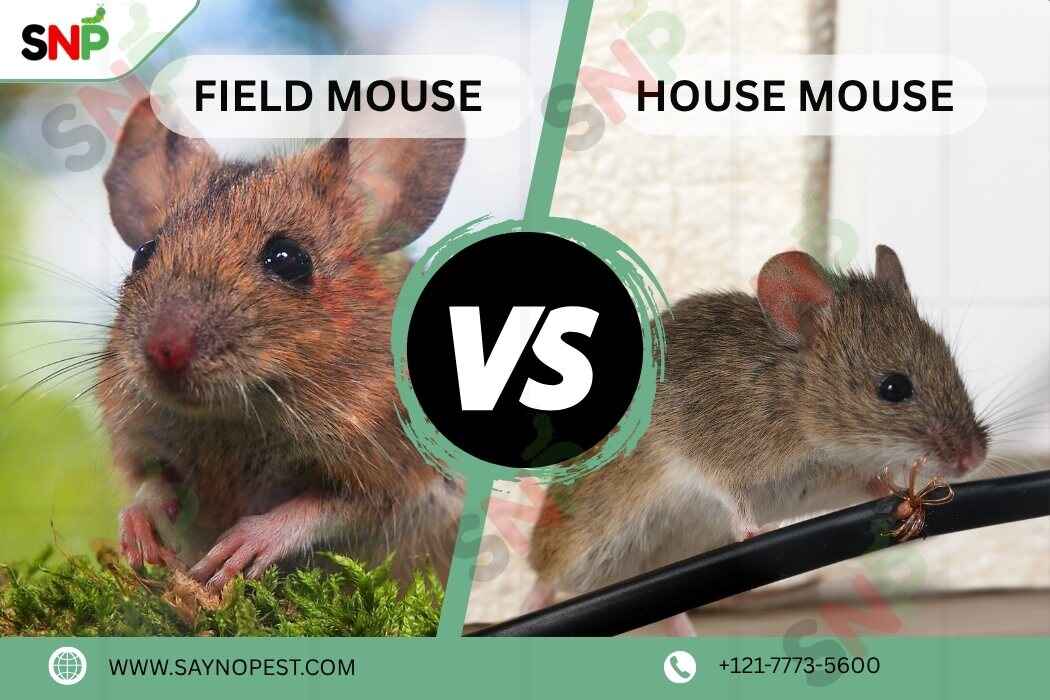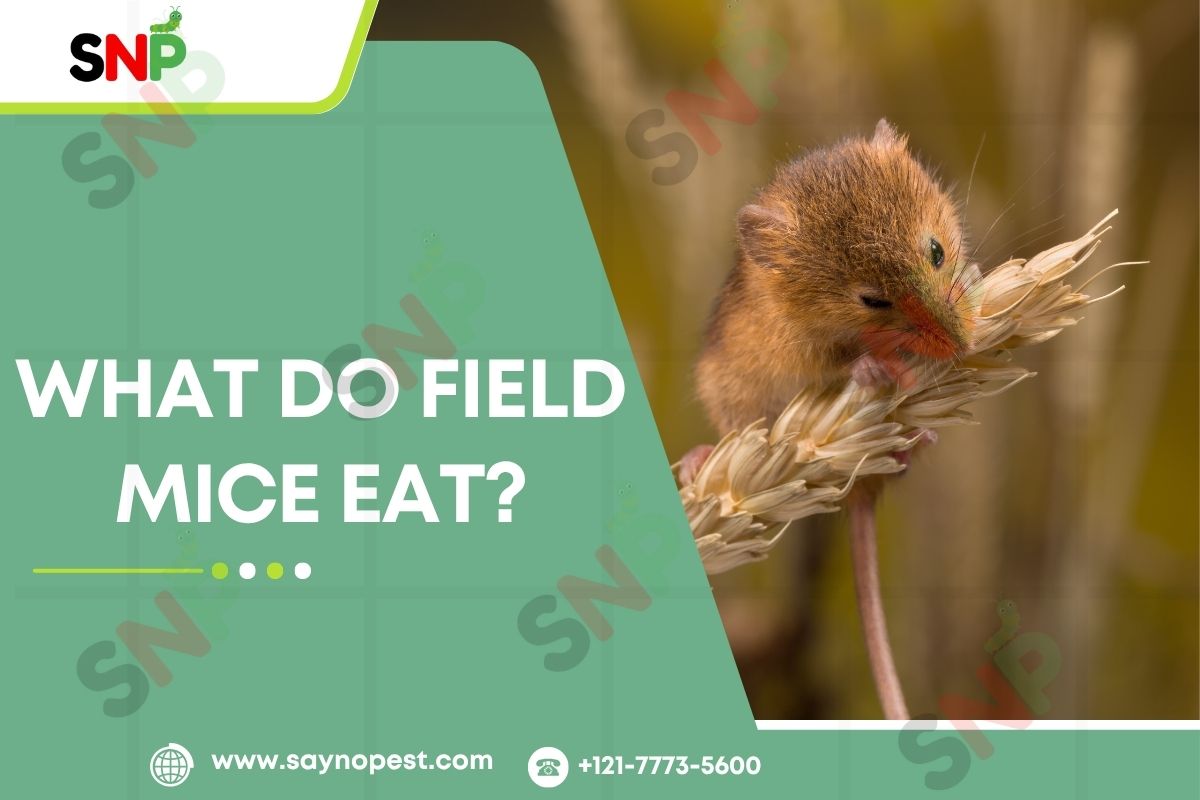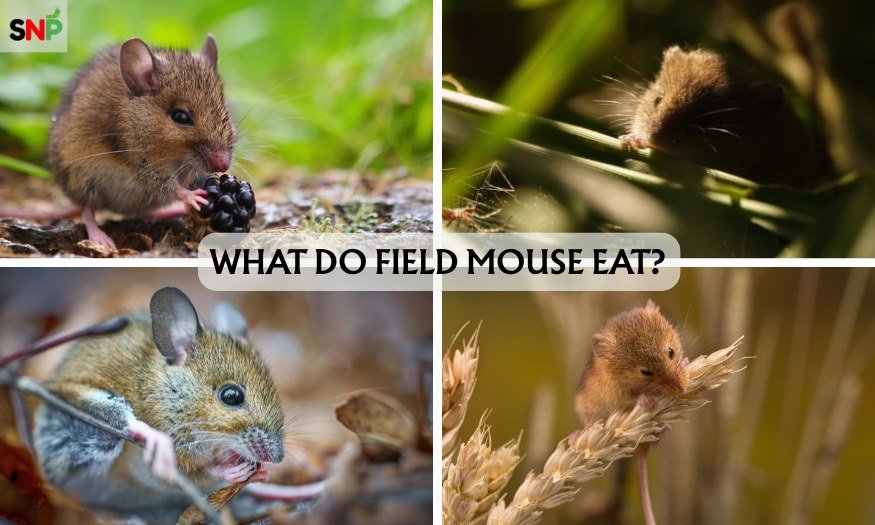It is essential to know how to differentiate between field mouse vs house mouse in case you want to eliminate these rodents forever. These are the two most common species of rodents that require different methods of eliminating them. This is because they represent different levels of danger to your family and your home.
All About Field Mouse vs House Mouse
Physical Appearance- Field mice are about 3 to 4 inches in length with tails of 6 to 9 cm. These little animals have a brown fur with very distinct white bellies, legs, and feet. Their tails are in a bi-colored pattern – dark on top and light underneath – and are covered with fine hairs.
The house mouse (Mus musculus) is normally smaller in size with a body length of 2.5 to 3.75 inches and the tail of 2 to 4 inches. A house mouse is almost hairless all over its body and the tail looks like it has scales.
On one comparison, the ears of field mice are small and they are not very round whereas the ears of house mice are big and very noticeable. Field mice also have bigger eyes, great for outside as compared to house mice.
Behavioral Differences

Field mice are fond of outdoor spaces such as open field, forests, meadows, etc. These small creatures tend to visit the homes during the cold season when they require warmth and a sleeping place. They will most probably nest in sheds, garages, and outbuildings and not in the houses.
House mice are the animals that live with us throughout the year. They have become the residential and urban environment’s well-adapted species. They live very close to humans and do not have any problems in making permanent nests inside houses.
The reproduction rate of house mice is faster than that of field mice, with females giving 5 to 10 litters yearly, each containing from 4 to 16 young.
Furthermore, the way they store the food is also different. Field mice, for instance, pick up the stolen food and store it near their nests. Whereas house mice, usually eat the food straight away when it is found.
Field mice follow the seasonal diet pattern of seeds, berries, insects, and root vegetables, while house mice stick to their favorite cereals and grains but they can be omnivores if there is nothing left around.
House mice are well-adapted to living in residential and urban environments. They establish permanent nests inside homes. House mice reproduce more rapidly than field mice, with females producing 5 to 10 litters annually containing 4 to 16 young each.
Health Risks from Field Mice
Field mice pose risks to the health of humans due to contamination with diseases that they carry. The main issue here is the Hantavirus Pulmonary Syndrome (HPS) that can cause death and is a virus that is transmitted by the deer mice.
Transmission of this virus may occur due to-
- Mouse urine
- Droppings
- Mouse Saliva
The initial signs of the disease are fever, headache, and muscle pain, after which coughing will become very intense, fluid in the lungs will appear, and if no treatment is given, there will be death as the final stage.
In this sense, field mice are the biggest threat when it comes to the rural area, cabins, and warehouses; if there are people there, they have to be aware that such places are potential unintentional sources of contamination of the environment with high concentration spots of infectious material.
Health Risks from House Mice
House mice are the main carriers of Salmonella disease, rat bite fever, and lymphocytic choriomeningitis (LCM). The symptoms are fever, headache, and muscle pain.
LCM is especially dangerous to pregnant women as the infection may lead to birth defects or lost pregnancy. Latest research reveals that some mice that live in houses carry bacteria that are resistant to antibiotics thus infections will be harder to manage.
What are the Causes of Food Contamination

Food contamination is an even bigger threat because rodents of both species will leave their droppings and urine everywhere they will be moving. They make places so smelly by frequent urination. This results in an environment that is not hygienic and moreover, it can cause allergic reactions to people.
Signs of Infestation of Field Mouse vs House Mouse
- The tiny dark-color or black droppings that are found inside or near the food.
- The gnaw marks that the mice have done on packaging and/or the structures
- The scratching noises that are heard in the walls or ceiling at night.
Prevention and Control Strategies
Effective rodent control will only come from consistent and extensive prevention practices such as closing ingress points, eliminating food sources, and shelter reduction.
Mice are highly adaptable and can squeeze through holes that are even smaller than the thickness of a pencil, and therefore sealing the entire house is a very crucial exercise.
Homeowners need to fill in the small holes with steel wool and caulk. Larger holes can be filled with metal screening or cement patching.
In case of worst infestation, the best solution is to hire professional pest control services.
Small mouse problems can be resolved using snap traps baited with peanut butter, seeds, or cheese. The traps need be placed along walls because that’s where mice usually move.
Conclusion: Field Mouse vs House Mouse
Knowing the difference between some field mice vs house mice allows you to take suitable prevention and control action.






